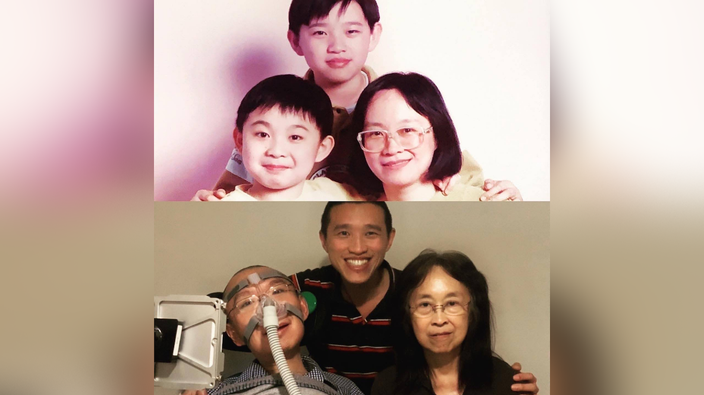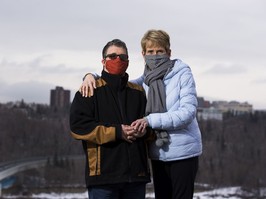were you also involved in her end-of-life care?
when she received her prognosis, i helped her plan for her end-of-life wishes. two or three years prior to mom’s diagnosis, i completed an end-of-life doula training. at the time, our family was going through a lot – my brother was experiencing some health challenges and we had started a
medical assistance in dying (maid) process.
completing the end-of-life doula training was an eye-opening experience for me, and i learned how to talk about death and dying with both my brother and our mom. i was able to apply the knowledge from the training to help mom through that end-of-life phase.
that must have been hard, caring for both your brother and your mother.
it was difficult. soon after our mom’s cancer diagnosis, we leaned on the
ontario health team, which is a local network of health-care professionals that provides coordinated care to patients and their families. they provided mental health support for mom, and they also offered personal support workers to help assist with her walking. as for me, i received grief counselling and psychotherapy support.
did mental health support made you a better caregiver?
when i was caring for my brother, i joined a men’s support group and some other non-professional groups as well and they helped me for many years. but when mom was diagnosed with cancer, i realized that i needed more help. at that time, i also had a power of attorney responsibility for an elderly family member who was living with dementia, so i was managing and coordinating care for three people at once for about two years. it was intense, but getting support from a therapist who specifically works with caregivers and having the professional and non-professional support made a world of a difference for me. it helped ground me, and as a result, i was able to better navigate the ups and downs of caregiving.
 7 minute read
7 minute read









